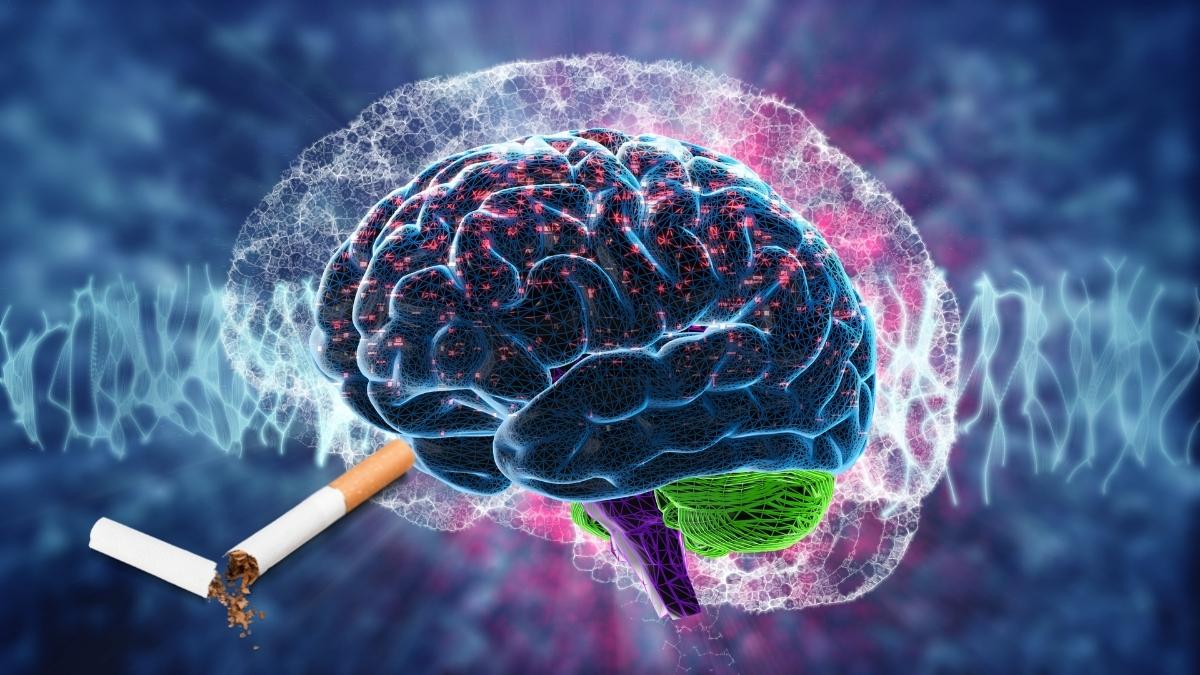Smoking and the Brain: Smoking and health have always been controversial topics. Some people argue that it’s important to continue smoking, while others insist that we should try to quit. In the end, what science shows is that smoking can have serious consequences for the brain.
I guess since I don’t smoke, I can’t really be harmed by cigarettes, am I right? You might be thinking. Wrong! Smoke from cigarettes contains carcinogens, which are chemicals that can lead to cancer in the body. Smokers who are also physically active have a higher risk of developing heart disease, lung cancer, and other fatal diseases.
Smoking and the Brain Can Cause Health Problems
Smoking is associated with a number of health benefits, including reduced stress levels, improved memory function, and an increased lifespan. However, there are a few concerns that should be kept in mind when it comes to smoking:
1. Smoking can cause cancers of the lung, mouth, and throat.
2. Smoking can increase the risk of developing lung cancer in people who already have lung cancer.
3. Smoking can also increase the risk of developing other types of cancer.
Why Should We Not Smoke?
Smoking and the Brain: Smoking is associated with numerous health benefits, including the following:
– Smokers experience less heart disease and stroke
– Smokers have a lower risk of lung cancer.
– Smokers have lower rates of nicotine addiction and other nicotine-related diseases
– Smoking can reduce the risk of developing chronic bronchitis and other respiratory problems
– Smoking is protective against some types of birth defects in the baby’s brain and spine.
Smoking Is Harmful to Your Health.
Smoking has many health benefits. It can improve your heart health, prevent lung cancer, and help reduce the risk of other diseases.
Smoking also has negative effects on your health. It can increase your risk of developing lung cancer, diabetes, and other diseases. Smoking is also a contributing factor to respiratory problems such as asthma and emphysema.
What are the Different Types of Smoking Substitutes
There are a variety of smoking substitutes available on the market today. Some common types of smoking substitutes include electronic cigarettes, water pipe tobacco, and hookahs. Each type of substitute has its own unique set of benefits and drawbacks.
How Smoking Affects the Brain
Smoking and the Brain: Smoking has also been linked with several mental health issues, including:
– Smokers are more likely to experience anxiety and depression
– Smokers are more likely to have trouble sleeping, eat poorly, and maintain a healthy weight
– Smokers are more likely to have problems thinking clearly and concentrating
If you’re considering smoking, it’s important to understand the health dangers of smoking and the potential mental health benefits. If you don’t want to smoke, there are many ways to quit without harming your health
Smoking’s impact on the respiratory system
Smoking is known to cause lung cancer, heart disease, and other health problems.
Smoking is also known to cause other health problems, such as lung cancer.
smoking’s negative effects on the cardiovascular system
Smoking has negative effects on the cardiovascular system by increasing the risk of heart disease, stroke, and other causes of death.
Smoking also has negative effects on the lungs, causing emphysema and other respiratory problems. Smoking is associated with a high risk of developing lung cancer.
How to Quit Smoking
Smoking and the Brain: Smoking has many health benefits, including reducing the risk of heart disease, stroke, and other illnesses. Smoking also reduces the risk of developing lung cancer.
How Smoking Affects the Brain
Smoking and the Brain can cause a number of problems to the brain, including:
-Inability to think clearly and efficiently
-Impaired memory and concentration
-Decreased learning ability
-Lack of focus and motivation
-Decreased dexterity
It is important to understand the health risks of smoking before trying to quit. Quitting smoking.com provides a wealth of information on the subject, including:
-How smoking can affect different parts of the brain
-How quitting can help improve your mood and mental health
-The importance of early detection and treatment for any problems caused by smoking
-How quitting can help protect your brain from future illnesses.
Vaping is Not a Risky Activity.
Vaping is not a risky activity. In fact, vaping is one of the safest ways to consume nicotine. Vaping e-cigarettes does not increase your risk of developing cancer, lung disease, or other diseases.
Conclusion
Smoking and the Brain: Smoking can be harmful to both the smoker and the people around them. If you’re interested in quitting smoking, there are many ways to do so. One of the most important things to remember is that quitting smoking will require effort and will not be easy – but it’s well worth it in the long run.










Greetings! Very helpful advice in this particular article! It is the little changes which will make the most important changes. Thanks a lot for sharing!
Excellent article! We will be linking to this particularly great article on our website. Keep up the good writing.
You’re so awesome! I don’t believe I have read a single thing like that before. So great to find someone with some original thoughts on this topic.
Pretty! This has been a really wonderful post. Many thanks for providing these details.
Greetings! Very helpful advice in this particular article! It is the little changes which will make the most important changes. Thanks a lot for sharing!
it’s awesome article. I look forward to the continuation.
Comments are closed.